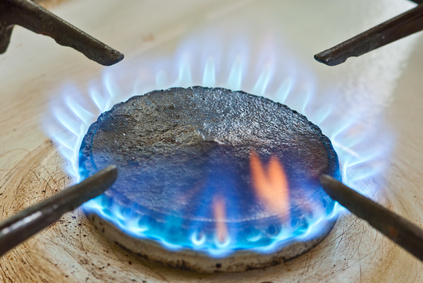7 Tips for Making the Kitchen Safer for a Loved One with Alzheimer’s Disease
- Details
- Published on Monday, 10 September 2012 13:19
 If you have a loved one living with Alzheimer’s disease or dementia, home safety is always a concern. Kitchens are one of the rooms in the house with the greatest potential for danger. Most people understand the problems the oven –and especially a gas stovetop—can cause. But, there are other hazards around the kitchen to watch out for.
If you have a loved one living with Alzheimer’s disease or dementia, home safety is always a concern. Kitchens are one of the rooms in the house with the greatest potential for danger. Most people understand the problems the oven –and especially a gas stovetop—can cause. But, there are other hazards around the kitchen to watch out for.
The care team at Fall River Jewish Home are pleased to share their top 7 kitchen safety tips:
- Consider whether or not your loved one really is safe using the stovetop or the oven. Are they safe or do you need to unplug the stove all together? Sometimes telling your family member the oven is broke may be the simplest solution.
- If you think your loved one may be safe cooking for a while longer, consider replacing the gas pilot light with an electric start. Your local gas company may also offer a service where they convert the odorless gas in your family member’s stove to one with a strong, recognizable odor. Both strategies will help prevent a potentially fatal situation if their pilot light goes out and they are unable to recognize it.
- Burns from hot water are another area to monitor. Alzheimer’s disease and dementia may reduce a person’s sensitivity to pain. They may not realize they have been burned or may not realize how bad the burn actually is. Check the water heater in their home to make sure the temperature isn’t set too high. Also helpful is to have a kitchen water faucet where the hot and cold water are combined in to one faucet. This makes adjusting the water temperature much easier.
- Make it a routine practice to check expiration dates on perishable items, especially those that should be refrigerated. Food poisoning or other foodborne illnesses can be especially hard on a weakened immune system.
- Don’t store cleaning supplies in the kitchen. Labels can often be confusing to someone with dementia, and you don’t want to risk a cleaning product being mistaken for a cooking staple.
- Consider disabling the garbage disposal. We all know how easy it is to mistake the disposal switch for an over the sink light switch. If your loved one has their hand down the drain rescuing a runaway fork at the time they hit the wrong switch, it could result in a serious injury.
- Get rid of kitchen rugs. This holds true for any throw rugs in any room in the house. They can be a fall risk, especially when floors underneath may be slippery. People with Alzheimer’s disease and dementia often have an unsteady gait as the disease progresses.
Have you found other ways to make your loved one’s kitchen safer? We’d love to hear from you!

